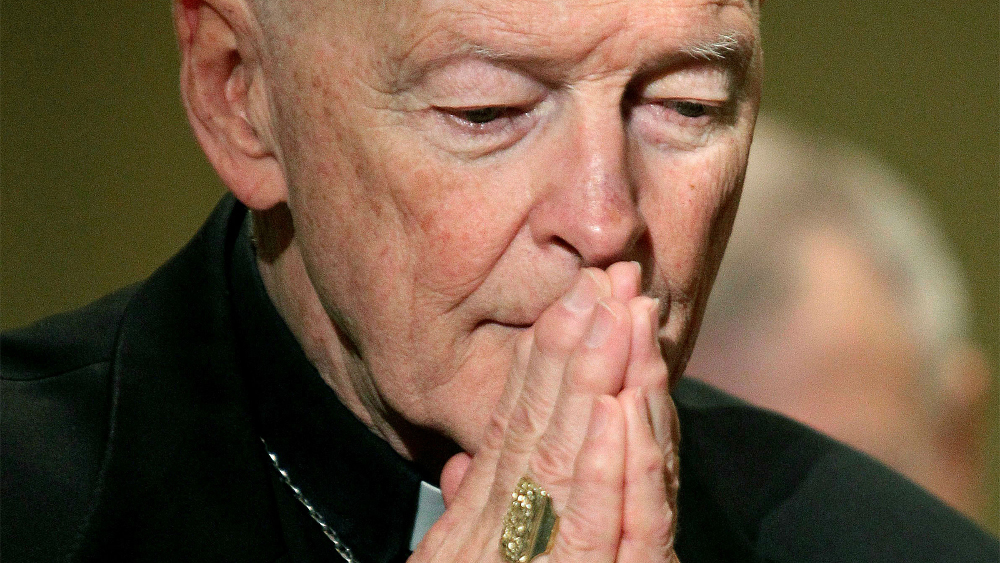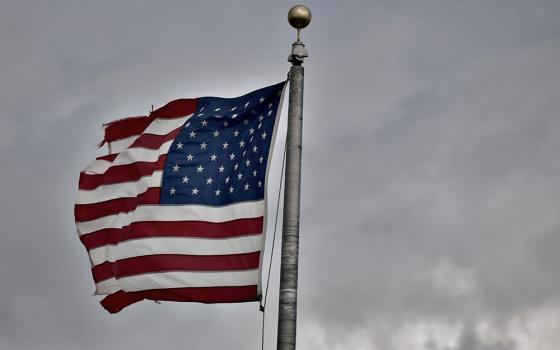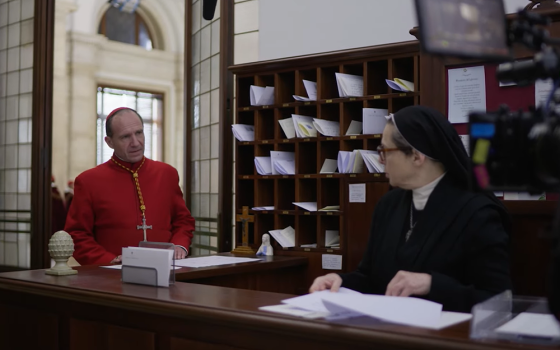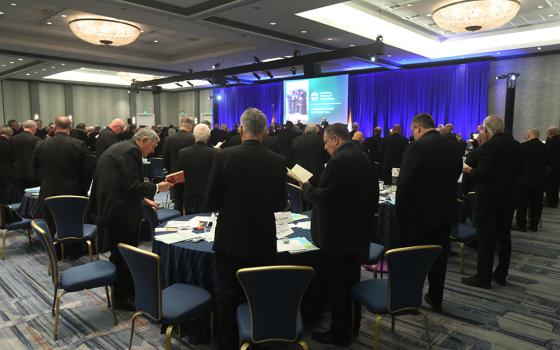
In this Nov. 14, 2011 file photo, Cardinal Theodore McCarrick prays during the U.S. Conference of Catholic Bishops' annual fall assembly in Baltimore. Pope Francis has accepted McCarrick's offer to resign from the College of Cardinals following allegations of sexual abuse, including one involving an 11-year-old boy, and ordered him to conduct a "life of prayer and penance" in a home to be designated by the pontiff until a church trial is held, the Vatican said. (AP/Patrick Semansky)
The recent sex abuse scandal involving Cardinal Theodore McCarrick raises once again the question of how the church can punish bad priests and bishops, especially when the state cannot because of the statute of limitations or other reasons. In the bad old days when the church had the Inquisition, the church could sentence bad clerics to prison, torture or death.
So, what can the church do today?
The truth is that, except for expulsion from office, the church can do little unless the cleric is willing to accept the punishment. The church no longer has a police force to compel anyone to do anything, although if a priest is financially dependent on the church, he may have little choice but to do what he is told. Otherwise, the church has no more power over a priest than any corporation has over an employee. A priest or bishop can refuse to accept punishment and simply walk away.
Clerics are capable of doing the same bad things as anyone else, from breaking the Ten Commandments to violating civil and criminal laws. After the state does or does not do its job, the church is confronted with the question of what to do.
The church's hope for clerics is the same as its hope for any sinner – that they repent and amend their ways. As a result, punishment or penance (like prayer and fasting) is normally looked on as medicinal.
Even excommunication, the expulsion of a person from the church, is seen in canon law as medicinal. The hope is that the excommunicated person will repent and return to the church. This is why excommunication does not work as a punishment for child abusers. If they repent and confess their sins, their excommunications would have to be lifted.
The normal ecclesial punishment for priests who abuse children is expulsion (laicization) from the priesthood, even for those who repent. Exceptions can be made for the elderly and infirm. The church does not want to wheel an old priest with Alzheimer's out of a nursing home and leave him on the sidewalk, even if he was an abuser.
Lawyers and public relations advisers recommend that bishops expel abusive priests and cut all ties to them. This reduces future liability and avoids accusations of being soft on the priest. Some, however, fear that if a priest is cut loose without supervision, he will be more likely to abuse again.
The alternative is to place the priest in a monastery, a retirement home for priests, or other facility where he will not have access to children and where he cannot leave the property without permission and supervision. This is as close as the church can come to putting a priest in prison.
If the priest is unwilling to accept such restraints, he would be expelled and lose the financial support of the church. Such confinement would be safer for children than expelling him into the general population, but if he ignores the restraints and abuses again, the church's liability would be off the charts, especially if church officials did a poor job of supervision.
Religious orders have been more willing than bishops to keep their abusive priests under supervision and confinement. Religious communities feel they, like a family, are responsible for their members, for better or for worse. Bishops have tended to cut ties with abusive priests unless they are elderly or infirm.
The McCarrick situation is unusual. At the request of Pope Francis, the allegations against McCarrick were investigated by the Archdiocese of New York and found credible and substantiated. At this point, if he were a simple priest, the archbishop of New York could have asked the Vatican to laicize him. Because McCarrick is 88 years of age and frail, instead the archbishop probably would have sent him somewhere free of children where he would stay until he died. In any case, he would not be allowed to act as a priest again.
Advertisement
Since McCarrick is a bishop and cardinal, the next step is up to the pope who has ordered him to refrain from any priestly ministry and to spend his time in prayer and penance until "accusations made against him are examined in a regular canonical trial." It is not unusual to order someone to refrain from priestly ministry prior to trial, but the injunction of "prayer and penance" gives the impression the pope has already made up his mind about McCarrick's guilt.
In addition, the pope accepted McCarrick's resignation from the College of Cardinals, something that normally would have happened only after he was found guilty. There has not been a resignation from the College of Cardinals since 1927, when French Cardinal Louis Billot resigned because of political disagreements with Pope Pius XI. Other cardinals accused of abuse or covering up abuse have not lost their red hats.
It is not clear how the trial will be conducted. The pope could appoint a special tribunal or he could send the case to the Congregation for the Doctrine of the Faith, which handles cases of abusive priests.
Church trials are mostly conducted by the judges reviewing documents submitted by all sides rather than through direct testimony and oral arguments. In any case, it would not be done in public.
Even if McCarrick is convicted, the final judgment and possible punishment would be up to the pope.
Since McCarrick is elderly and frail, it is hard to believe that the pope will laicize him and throw him out on the street. Since he has already resigned from the College of Cardinals, there is little more that the pope can do to him than he has already: a life of prayer and penance away from the public eye without the right to exercise his priestly ministry in public. If the cardinal refuses to accept this punishment, the church can expel him from the priesthood and cut off his financial support.
In earlier centuries, popes did put priests and cardinals in jail. Pope Clement XIII, for example, unjustly imprisoned the Fr. Lorenzo Ricci, the Jesuit superior general, in Castel Sant'Angelo in Rome until he died in 1775. That, of course, is no longer possible. Only the state has such powers today.
Few would want the church to have such police power today, but if the state is unable to punish an abuser because of the statute of limitations, it is disappointing to both victims and the public to see an abuser go unpunished. Unfortunately, there are legal and practical limits to what the church can do in punishing abusive priests and bishops, especially if they refuse to cooperate.
[Jesuit Fr. Thomas Reese is a columnist for Religion News Service and author of Inside the Vatican: The Politics and Organization of the Catholic Church.]








